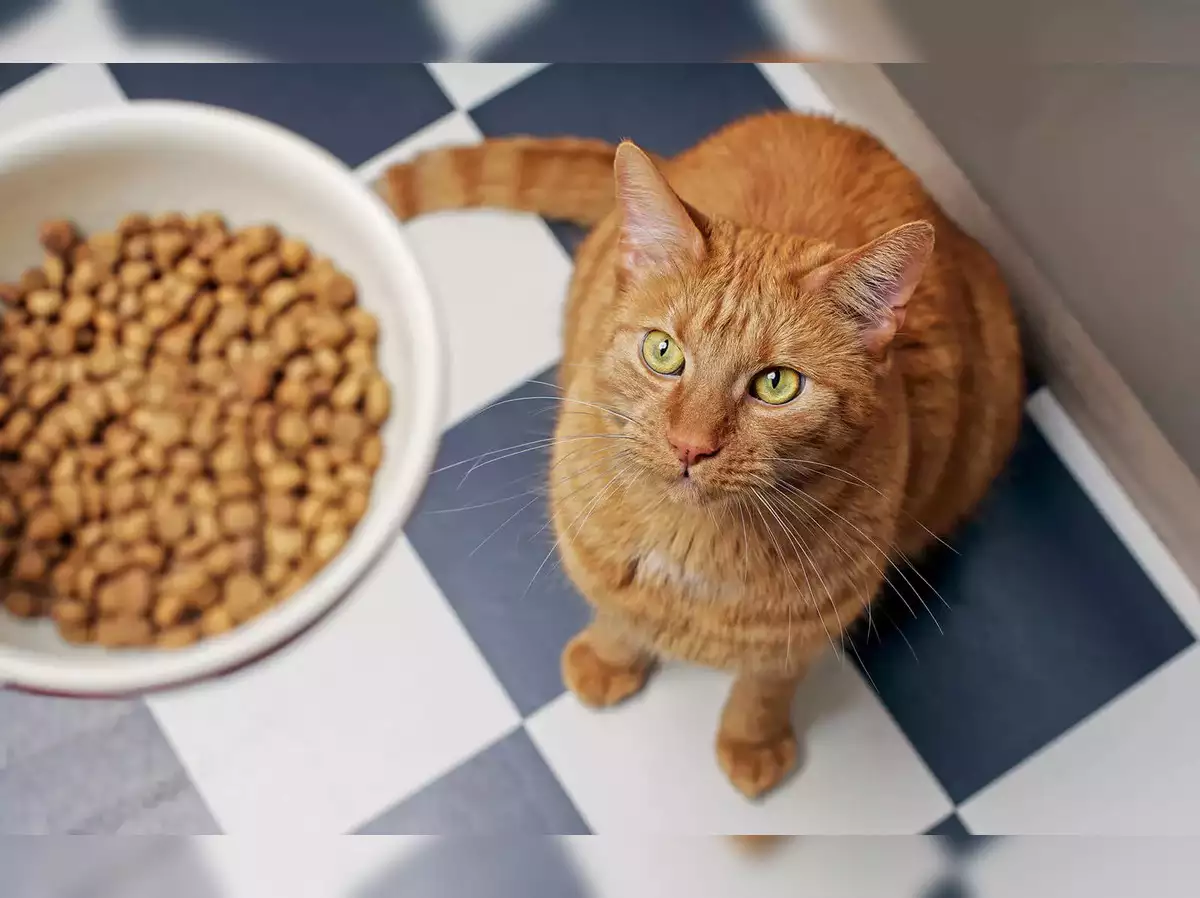
If you’re one among 66% of American cat owners, you share a remarkable and rewarding bond with your fuzzy friend. From watching them take on gravity-defying acrobatics to the cherished comfort of pussy purring in our laps for a catnap – there’s no denying that felines are fabulous companions. But what about a kitty-cat’s diet? What types of cat food can ensure these beloved creatures stay healthy and happy, with ultimate nutritional benefits for optimal health? We’ve got answers.
Let’s Talk Diet for Cats First
Did you know there are over 30 different brands of cat food on the market today? Add to that, there are all manner of types of treats and food, such as dry, wet, raw, etc. With all of these options, making the right food choices for Kitty can be a mind-boggling affair. But, it doesn’t have to be.
When you consider that non-domesticated cats thrive on primarily juicy meats they hunt in the wild, you’re already getting closer to making better food choices for your cat. Furthermore, feline nutrition research reveals that the best food options for domestic cats lean toward a well-balanced diet of wet food with at least a 40% protein content and caution against owners feeding cats too much (or low quality) dry food (known as kibble).
Drumroll Please, Types of Cat Food With Pros and Cons
While we fully understand that every cat is different, we’ve also done our homework and know that moisture, quality of ingredients, and nutritional content are key to healthily feeding cats. That said, here are our top picks for cat food types, along with pros and cons for each.
1. Raw Cat Food
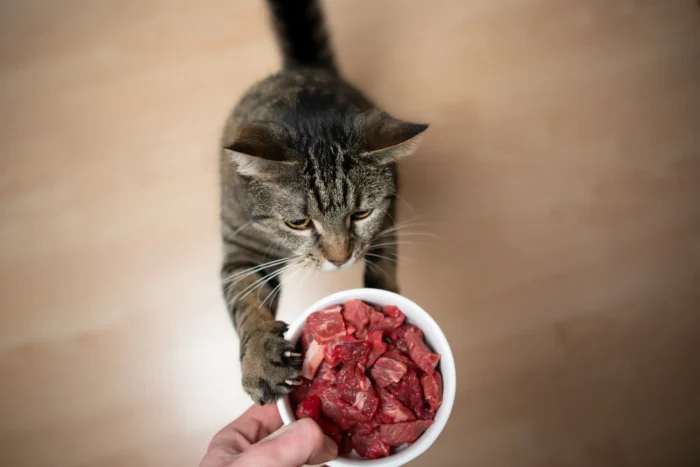
According to experts, this medium is the best because it is as close to natural cat food as you’re going to get. Because it is raw meat, it is the purest form of food and thus mimics what a cat would eat in its natural environment. Additionally, raw cat food has a higher protein content, which is recommended by veterinarians. Another benefit is that this type of food typically has fewer additives or fillers. Contrarily, raw cat food isn’t always easy to find at local stores so it might be an inconvenience for owners. However, there are several trustworthy suppliers where you can get a raw food subscription for your cat.
2. Wet Food
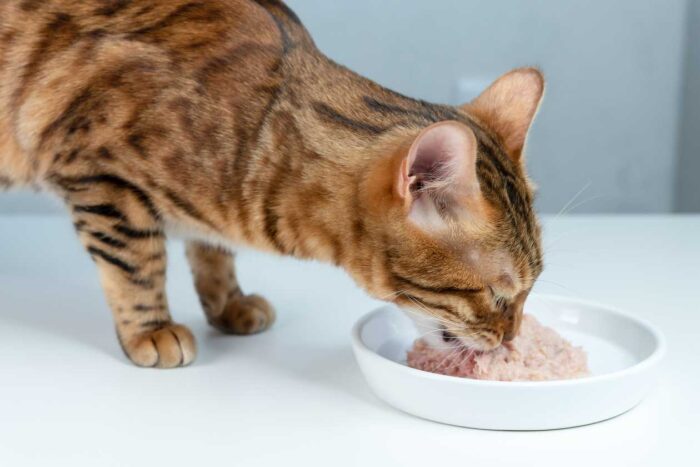
This isn’t as good as raw, but wet food, such as found in cans is a good option. Why? Because it contains higher amounts of proteins. It’s also juicy and moist, which is essential because cats can receive most of their hydration from food. The downside is that wet food is typically more expensive than dry kibble. However, it’s convenient to get cans at almost any store. You can also get finer-developed cans of wet food online through a subscription service.
3. Dry Food
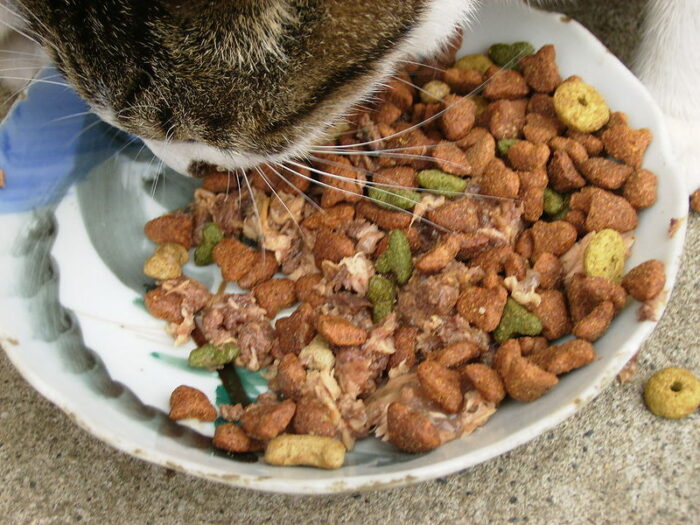
This is the most popular type of cat food because of the price point. Cat owners also appreciate its availability, as this type of pet food can be purchased just about anywhere. That said, dry food isn’t recommended as the sole food source for cats. As explained, cats need a well-balanced diet, and kibble doesn’t consistently deliver that. Furthermore, cats need moisture in their foods because that’s their primary source of hydration.
4. Homemade
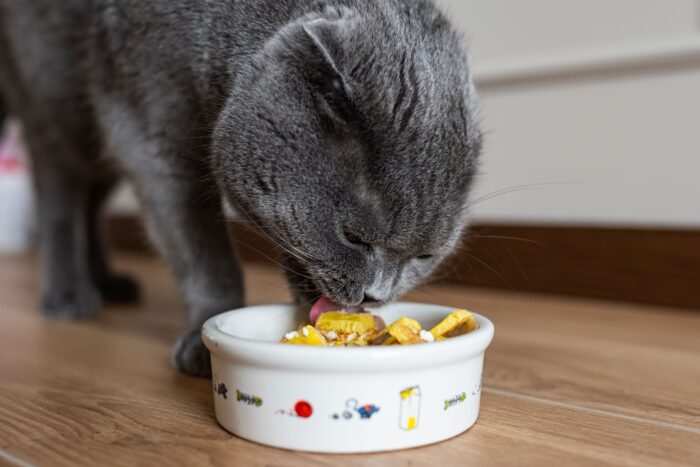
If none of these options sit with you, try making your own cat food at home. You can do an internet search for different types of recipes. Cooked meats such as chicken or beef and canned tuna can be used for a yummy feast for your kitty cat. You can also add meat stock, cooked rice, and other vet-approved ingredients. Depending on your recipe, this might be an affordable option. The best bonus about homemade food is that you know exactly what is going into your precious pussy’s food.
Nutrient-Rich Supplements
Incorporating nutrient-rich supplements into a cat’s diet can significantly enhance their health and vitality, especially when tailored to meet individual needs. Omega-3 fatty acids, such as those found in fish oil, are essential for maintaining a glossy coat and healthy skin, reducing inflammation, and supporting cognitive function. Probiotics are another beneficial supplement, promoting a healthy digestive system by balancing gut bacteria, which is crucial for nutrient absorption and a strong immune system. Taurine, an indispensable amino acid for cats, supports heart health, vision, and reproductive functions. It’s essential to ensure cats receive adequate taurine, particularly if their diet lacks animal-based proteins where taurine is naturally found. Consulting a veterinarian before introducing supplements is vital to avoid unnecessary or excessive supplementation, which could lead to imbalances and health issues. A carefully considered approach to supplementation, based on a cat’s specific health profile and dietary needs, can provide significant health benefits.
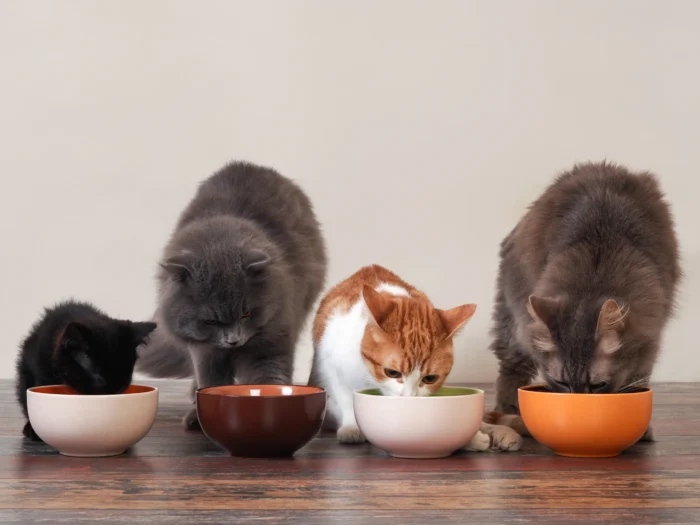
Special Dietary Needs for Senior Cats
As cats enter their senior years, their dietary requirements evolve, necessitating adjustments to their nutrition to accommodate their changing health needs. Senior cat foods are often formulated with lower calorie content to prevent weight gain as their activity levels decrease. These diets also contain increased fiber to aid in digestion, which can become less efficient in older cats. Supplements like glucosamine and chondroitin are frequently added to support joint health, addressing common age-related issues such as arthritis. It’s crucial to maintain a diet rich in high-quality proteins to preserve muscle mass, yet it should not strain the kidneys. Tailoring your senior cat’s diet to their specific health conditions, in consultation with a veterinarian, can significantly enhance their quality of life, ensuring they remain healthy and vibrant in their golden years.
The Last Word on Choosing Different Types of Food for Your Cat
We hope these four fancy feast types for your cat have proven helpful as you strive to provide your feline friend with all the nutrients they need. Please keep in mind that these are only suggestions, and you may have different outcomes with different cats and food combinations. You should also know that this article should in no way replace nutritional, dietary, or health advice from your veterinarian.





